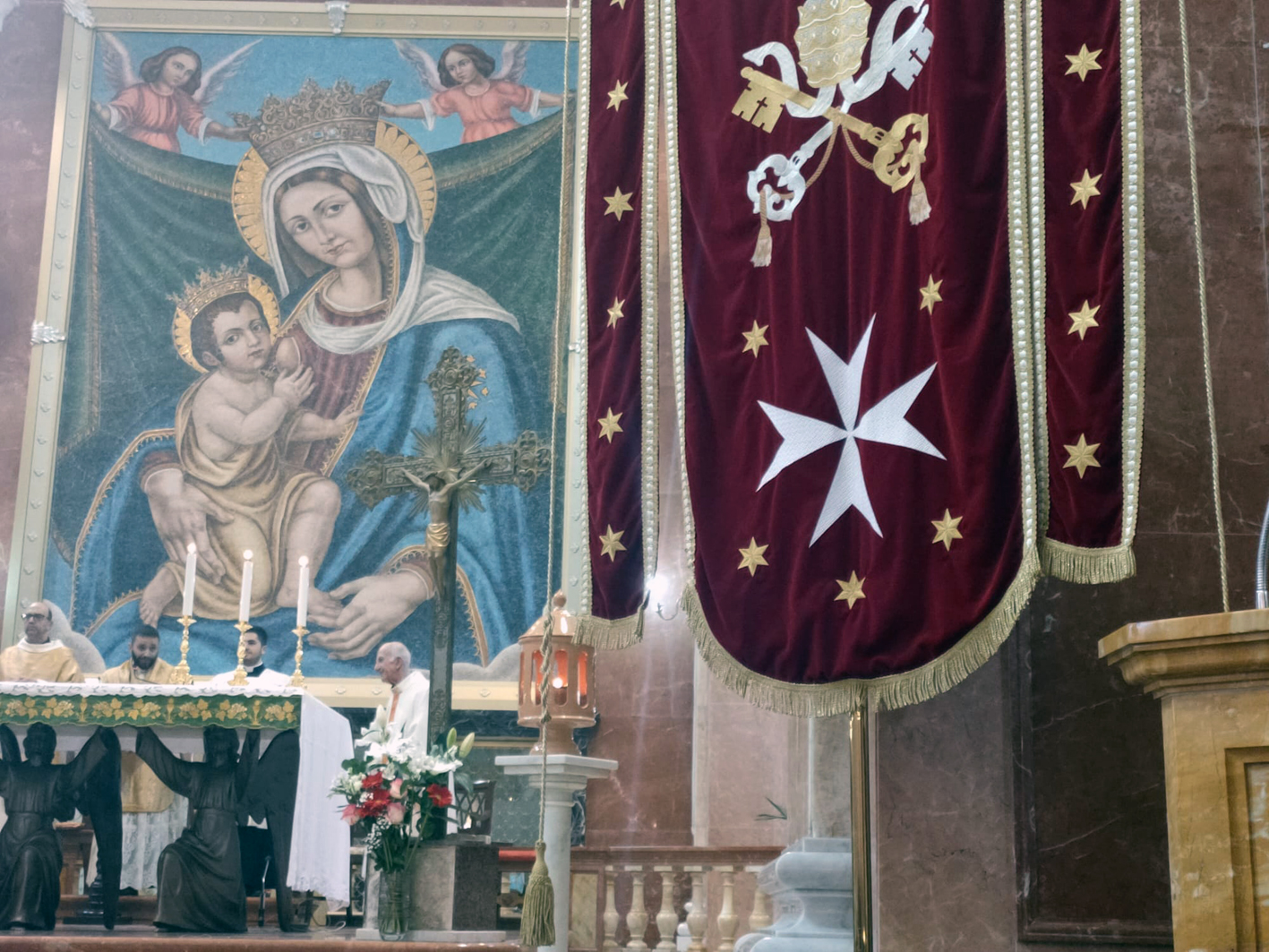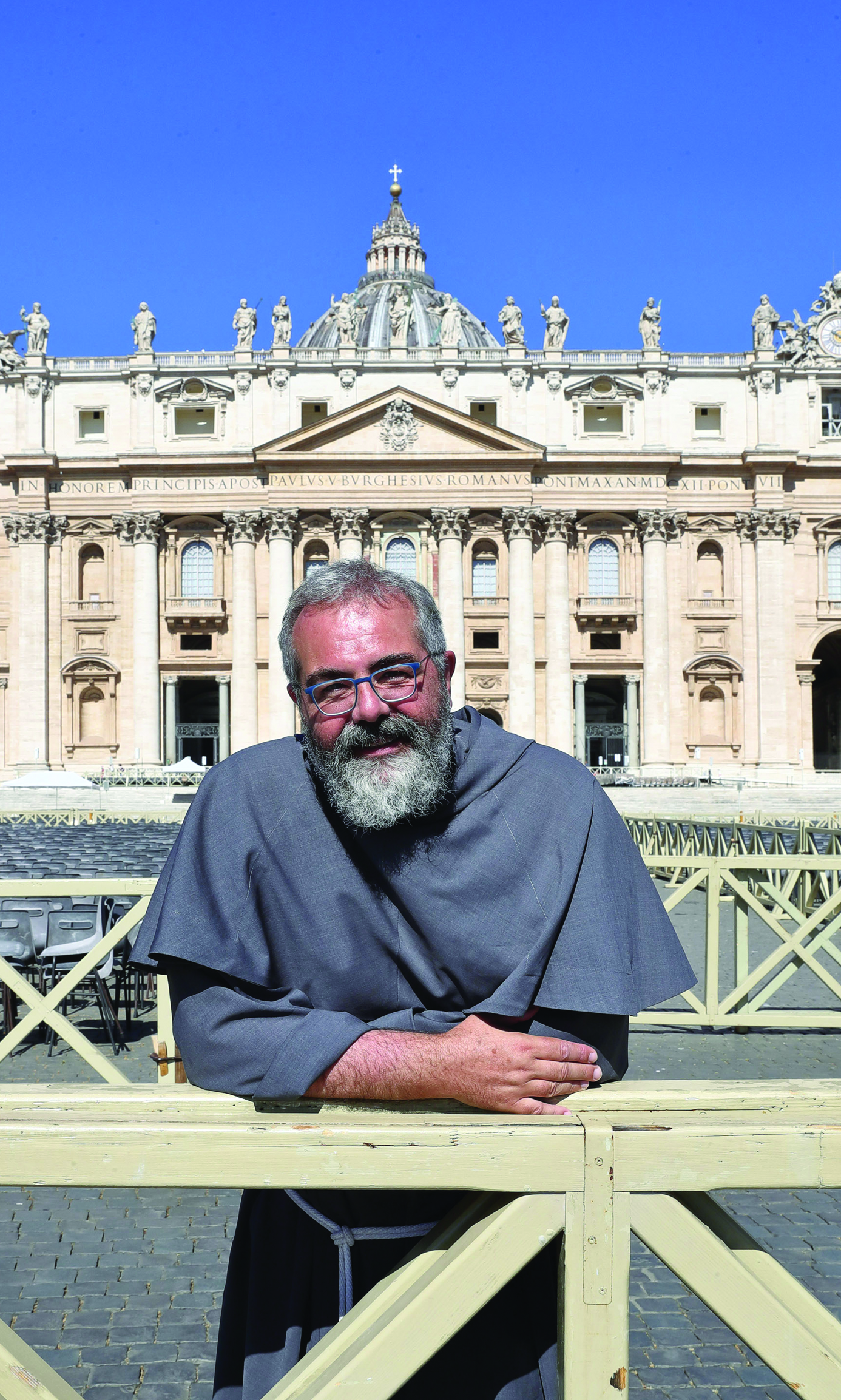Pope Francis, at his noon Angelus on January 14, announced the names of 19 new cardinals he had chosen: 16 “electing” cardinals under the age of 80, and three “honorary” cardinals above the age of 80 who are not eligible to vote in a conclave.
The ceremony to create these new cardinals would be in Rome on February 22, Feast of the Chair of St. Peter, he said, followed by a solemn Mass the next day, February 23. It would be Pope Francis’ first consistory.
Are there surprises? Yes, a number — except that many of these “surprises” were rumored for some time, so we cannot really consider them “surprises” at all. But the choices are different than ones that might have been made by another Pope.
Pope Francis in general has chosen “lesser-known” men (for example, a lesser-known prelate from the Philippines, Orlando B. Quevedo, O.M.I., Archbishop of Cotabato) and overlooked several prelates who might normally have been “expected” to have been named cardinals, especially Archbishop Francesco Moraglia, Patriarch of Venice, originally from Genoa (he was ordained a priest by Cardinal Giuseppe Siri of Genoa).
In this way, Francis, by his choices, continues to give a powerful signal that he wants the Church to think less about herself — in his signature phrase, to not be “self-referential” — and instead to think more about the poor and suffering in our world, to go increasingly “out of the sacristy” and into the “peripheries” to encounter those who are often forgotten and without hope.
So, under Francis, we are in a period when old schemes of ecclesial power, authority and promotion are being set aside in favor of a new emphasis on pastoral care in support of the marginalized and the suffering. There are no Americans on the list (some had expected one or two American archbishops might be chosen). There is one from Great Britain: Archbishop Vincent Nichols of Westminster. The personal secretary of Pope John XXIII, Loris Capovilla, who is now 98, was chosen. He was present in 1959 when Pope John, at Catsel Gandolfo, asked for the Third Secret of Fatima to be brought to him to read.
Here are the names:
1. Pietro Parolin, Titular Archbishop of Acquapendente, Secretary of State.
2. Lorenzo Baldisseri, Titular Archbishop of Diocleziana, Secretary General of the Synod of Bishops.
3. Gerhard Ludwig Müller, Archbishop-Bishop emeritus of Regensburg, Prefect of the Congregation for the Doctrine of the Faith.
4. Beniamino Stella, Titular Archbishop of Midila, Prefect of the Congregation for the Clergy.
5. Vincent Nichols, Archbishop of Westminster, United Kingdom.
6. Leopoldo José Brenes Solorzano, Archbishop of Managua, Nicaragua.
7. Gerald Cyprien Lacroix, Archbishop of Quebec, Canada.
8. Jean-Pierre Kutwa, Archbishop of Abidjan, Ivory Coast.
9. Orani João Tempesta, O.Cist., Archbishop of Rio de Janeiro.
10. Gualtiero Bassetti, Archbishop of Perugia-Città della Pieve, Italy.
11. Mario Aurelio Poli, Archbishop of Buenos Aires, Argentina.
12. Andrew Yeom Soo-jung, Archbishop of Seoul, South Korea.
13. Ricardo Ezzati Andrello, S.D.B., Archbishop of Santiago del Cile, Chile.
14. Philippe Nakellentuba Ouedraogo, Archbishop of Ouagadougou, Burkina Faso.
15. Orlando B. Quevedo, O.M.I., Archbishop of Cotabato, Philippines.
16. Chibly Langlois, Bishop of Les Cayes, Haiti.
The three over the age of 80:
17. Loris Francesco Capovilla, Titular Archbishop of Mesembria.
18. Fernando Sebastian Aguilar, C.M.F., Archbishop emeritus of Pamplona.
19. Kelvin Edward Felix, Archbishop emeritus of Castries.
Perhaps the two most noticeable omissions are two Italians: Moraglia, the Patriarch of Venice (recall that Pope John XXIII and Pope John Paul I were both Patriarchs of Venice before being elected Popes in 1958 and 1978, so Venice has been a very prominent see in the Church) and Cesare Nosiglia, Archbishop of Turin. Moraglia was named Patriarch of Venice two years ago, in January, 2012, by Pope Benedict XVI, succeeding Cardinal Angelo Scola on the throne of St. Mark. He took up his post in March 2012. Moraglia was born in Genoa on May 25, 1953 and was ordained priest by Cardinal Giuseppe Siri on June 29, 1977. Moraglia was considered a “Ratzingerian,” both from a theological and liturgical point of view. However, on more than one occasion, the bishop took a supportive position on behalf of unemployed factory workers.
Two other important names not on the list: (1) The Vatican Librarian, the French Dominican scholar Jean-Louis Bruguès. When he was secretary of the Vatican’s Congregation for Catholic Education, he opposed then-Cardinal Bergoglio’s choice to be rector of The Catholic University of Buenos Aires, Father Victor Manuel Fernández, who is said to be very close to Pope Francis and one of his “ghost-writers” for papal documents; and (2) the Archbishop of Malines-Bruxelles, Belgium, André Léonard, considered a “conservative” and one of the “rising stars” in the Church in Western Europe.







Facebook Comments